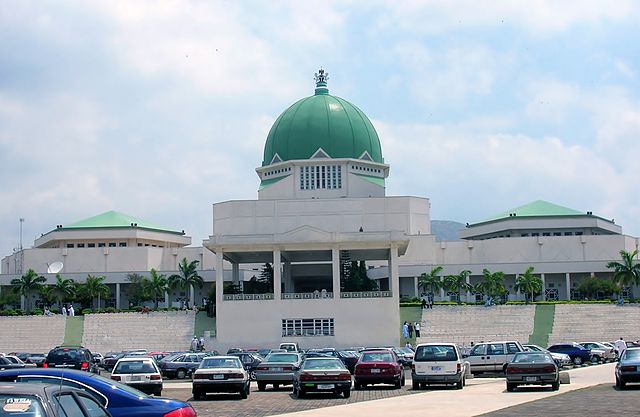The federal government of Nigeria is composed of three distinct branches: the legislative, the executive, and the judicial, whose powers are vested and bestowed upon them by the Constitution of the Federal Republic of Nigeria, the National Assembly, the president, and lastly the federal courts, which includes the Supreme Court which is regarded as the highest court in Nigeria. One of the major functions of the constitution is that it provides for separation and balance of powers among the three branches and aims to prevent the repetition of past mistakes made by the government. Other functions of the constitution include a division of power between the federal government and the states, and protection of various individual liberties of the nation's citizens.
Nigeria's National Assembly building with the mace
National Church of Nigeria in Abuja
2009 mosque Lagos Nigeria 6349959461
National Assembly (Nigeria)
The National Assembly of the Federal Republic of Nigeria is a bicameral legislature established under section 4 of the Nigerian Constitution. It consists of a Senate with 109 members and a 360-member House of Representatives. The body, modeled after the federal Congress of the United States, is supposed to guarantee equal representation with 3 senators to each 36 states irrespective of size in the Senate plus 1 senator representing the Federal Capital Territory and single-member district, plurality voting in the House of Representatives. The National Assembly, like many other organs of the Nigerian federal government is based in Abuja in the Federal Capital Territory.
National Assembly (Nigeria)
Nigeria's National Assembly Building
Nigeria Senate Building (Red Chamber)
Nigeria's National Assembly Building with the Mace






